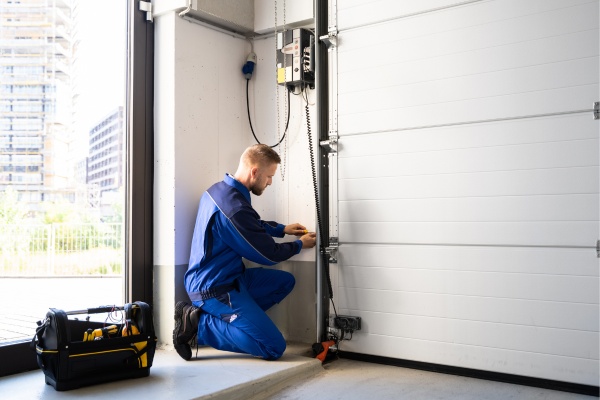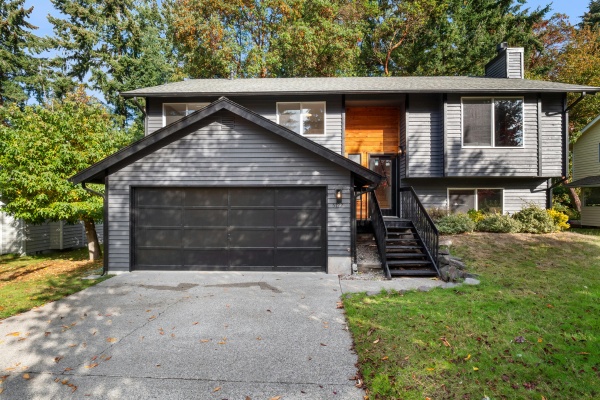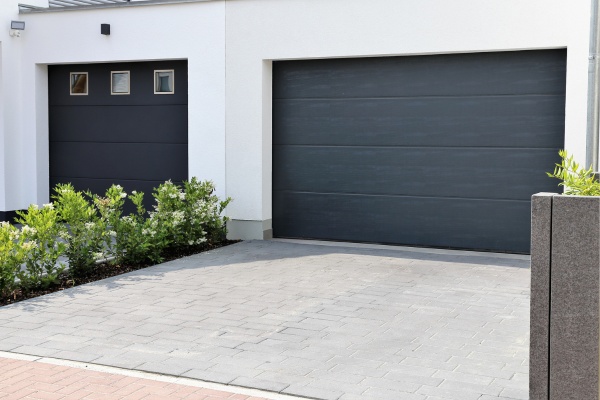Is your garage door making more noise than a rock concert? Is it stubbornly refusing to open or close? Don't despair! This comprehensive guide tackles common garage door problems, offering practical solutions and preventative measures to keep your garage door running smoothly for years to come. Whether you're a seasoned DIYer or a homeowner looking for expert advice, we've got you covered.
What are Common Garage Door Problems?
Garage doors, while seemingly simple, are complex mechanisms prone to various issues. Understanding common problems is the first step toward effective troubleshooting and repair. Noisy operation, often stemming from worn rollers or loose hardware, is a frequent complaint. Stuck doors can result from obstructions, broken springs, or problems with the opener's limit switches. Doors can also come off track due to misalignment, bent tracks, or damaged rollers. Broken springs, requiring immediate attention due to safety concerns, are another common problem. Lastly, issues with cables, essential for lifting the door, can lead to malfunctions. Addressing these issues promptly can prevent more significant damage and ensure the safety and security of your home.
How Can I Fix a Noisy Garage Door?
A noisy garage door is more than just an annoyance; it often indicates a problem requiring attention. Regular lubrication of moving parts, especially rollers, hinges, and tracks, is crucial for quiet operation. If the noise persists, inspect the rollers for wear and tear—worn rollers are a common culprit. Bent tracks, another frequent cause, should be carefully straightened or replaced. Loose hardware such as bolts and screws might also contribute to the noise, so tighten them securely. Addressing these minor issues proactively can prevent major problems and maintain the longevity of your garage door system. Replacing noisy rollers is a relatively simple DIY project, while addressing bent tracks might need a professional’s help.

What Should I Do if My Garage Door is Stuck?
A stuck garage door can be frustrating, but a methodical approach can usually resolve the issue. First, check for any obstructions blocking the door's path. If the door is electrically operated, try using the manual release cord located on the opener to disengage the automatic mechanism and manually operate the door. Then, inspect the limit switches on the opener; misadjusted limits can prevent the door from closing or opening fully. Finally, check the force settings on your opener; these settings dictate how much force the motor applies. Incorrect settings can lead to the door becoming stuck. If the door still doesn't move, a professional inspection may be necessary.
How Do I Replace Broken Garage Door Springs?
Replacing broken garage door springs is a task best left to professionals. These springs store significant energy, and improper handling can lead to serious injury. Attempting a DIY repair without the proper expertise and safety precautions is strongly discouraged. However, if you are determined to undertake the repair yourself, remember that it requires specific tools, careful measurements, and a deep understanding of spring tension. Before starting, consult manufacturer's instructions and videos on safe spring replacement. Remember, your safety is paramount. In most cases, it's wise to contact a qualified garage door technician for a safe and efficient replacement.


What Causes Garage Doors to Come Off Track?
A garage door coming off track is often caused by misalignment, obstructions in the tracks, or faulty rollers. Over time, normal use can cause the door to become slightly misaligned, leading to it jumping the track. Debris or obstructions in the tracks can also cause the door to derail. Worn or damaged rollers can struggle to maintain proper alignment, contributing to the problem. Regular inspection and lubrication of the tracks and rollers can help prevent this issue. If the door comes off the track, carefully and gently re-align it, paying close attention to ensuring each roller is securely seated within its track. If you are uncomfortable performing this task, it’s best to call a qualified professional.
How to Troubleshoot Garage Door Openers?
Garage door openers, whether chain, belt, or screw drive, can experience various malfunctions. Start your troubleshooting by checking the power supply – a simple power outage can be the culprit. Next, inspect the safety sensors; these are crucial for preventing accidents, and a misaligned or obstructed sensor will prevent the door from closing. If your remote control is not working, try reprogramming it following the manufacturer's instructions. If you're dealing with a more complex problem, like inconsistent operation, it's time to involve a professional technician. They possess the knowledge and tools to effectively diagnose and fix complex electrical and mechanical problems.
How Often Should I Perform Garage Door Maintenance?
Regular maintenance is key to extending the life of your garage door and preventing costly repairs. Monthly inspections are recommended, including visually inspecting tracks, rollers, springs, cables and checking for any loose hardware. Annual professional servicing is also advisable, allowing a qualified technician to perform a thorough assessment and address potential problems before they escalate. Regular lubrication of moving parts reduces friction and noise and keeps the system operating smoothly. Don't forget to regularly test the safety sensors—your safety and the safety https://gregoryedpy173.raidersfanteamshop.com/discover-edmonton-s-best-dinner-spots-in-2025-a-culinary-guide of your family are worth it!
What are Common Issues with Garage Door Openers?
Garage door openers, essential for convenient operation, can also present several issues. Power failures are a common occurrence, particularly during storms. Programming problems with remotes and keypads are another frequent complaint, often easily resolved by following the opener's manual. Mechanical failures can occur due to wear and tear or more serious internal problems. The type of opener (chain drive, belt drive, or screw drive) can also impact potential issues. Chain drives, for example, tend to be louder than belt drives, while screw drives offer more precise operation. Choosing the right opener for your needs and ensuring regular maintenance are crucial for avoiding these problems.
How to Prevent Garage Door Problems?
Preventive maintenance is the best way to avoid costly repairs and ensure the longevity of your garage door system. Regular lubrication of moving parts significantly reduces wear and tear. Installing weather stripping helps prevent drafts and moisture damage, protecting the door and its components from harsh weather conditions. Applying sealing around the garage door and frame can help maintain insulation and prevent unwanted air leaks. Properly sealing the garage door also increases home security by preventing unwanted access. Simple preventive measures can save money and increase the lifespan of your garage door.
Garage Door Opener Types Compared
Opener Type Advantages Disadvantages Noise Level Maintenance Chain Drive Affordable, durable Noisy, can cause vibrations High Moderate Belt Drive Quieter, smoother operation More expensive than chain drive Low Moderate Screw Drive Quietest, precise operation, long lasting Most expensive, complex repair Very Low LowMonthly Garage Door Maintenance Checklist
- Inspect tracks for alignment and obstructions Check rollers for wear and tear Lubricate moving parts (hinges, rollers, tracks) Test safety sensors Examine springs for any signs of damage or wear Tighten any loose hardware Check the operation of the opener and remote
Frequently Asked Questions
What is the average cost of garage door repair? The cost varies greatly depending on the issue and whether it's a DIY repair or a professional service. Simple fixes might cost under $100, while major repairs, like spring replacement, can cost several hundred dollars.
How long do garage door springs last? Garage door springs typically last 5-7 years, but their lifespan depends on use and weather conditions.
Can I repair my garage door myself? Some simple repairs, like lubrication and tightening loose hardware, are manageable DIY projects. However, more complex repairs, like spring replacement, are best left to professionals for safety reasons.
What should I do if my garage door won't close? First, check for obstructions, then examine the limit switches and force settings on the opener. If the problem persists, call a professional.
This guide provides valuable information on common garage door issues and their solutions. By following these tips and performing regular maintenance, you can keep your garage door operating smoothly and safely for years to come. Remember, always prioritize safety, and don't hesitate to call a professional if you're unsure about any repair.